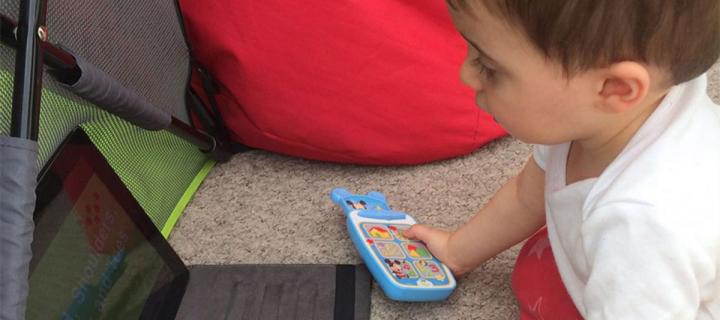Collaborating with the BBC to support children's learning via CBeebies online games
The BBC invited researchers to develop parent-friendly suggestions to improve children’s learning from and enjoyment of CBeebies online games.

Research hubs
Digital Education
Research experts
Research centre
Centre for Research in Digital Education
What was the problem?
In 2015, more than half (53%) of 3- and 4-year-old children had access to tablets at home (Ofcom, 2015) and that number continues to grow. With the rise of tablets, smartphones and other devices, a number of myths (Plowman & McPake, 2013) have emerged about children’s use of digital media and some parents have become concerned about screen time. However, research in the report Exploring Play and Creativity in Pre-Schoolers’ Use of Apps shows that technology can aid learning and creativity, particularly when parents are actively involved in their children’s play.
Exploring Play and Creativity in Pre-Schoolers' Use of Apps
In 2014, the BBC asked Lydia Plowman and Juliet Hancock to consider how CBeebies games on the website and apps could become springboards to further learning.
What did we do?
The researchers reviewed over 80 CBeebies games to assess their educational value, areas of learning and development, and overall enjoyment. Lydia and Juliet then devised pointers to the potential learning opportunities for each game. This guidance was aimed at parents so that they could support engagement with their children in shared activities both digitally and around the home. For each CBeebies game, these guided interaction points identified areas of learning and development, such as numbers or the ability to concentrate, along with a complementary activity and a simple description of how learning could be extended. For example, if the digital game featured matching and sorting, the related parent and child activity might involve matching socks while sorting the laundry.
What happened next?
The research gave CBeebies games an enhanced focus on children’s learning and development. The guided interaction points have helped parents share young children’s screen time and participate in their digital games.
As many children were likely to receive handheld devices for Christmas 2014, Lydia and Juliet were featured on BBC iWonder, its digital encyclopaedia. This provided thought-provoking answers to everyday questions, such as ‘Are tablets good for children?’
As a result of this work, the BBC also included guided interaction points on their Storytime app, and in 2016, commissioned suggestions for a further 16 games on the CBeebies site.
This partnership gave the researchers the opportunity to show how parents could share in the enjoyment of the games with their children while demonstrating how the games enhance children’s learning and development.
It’s important to play along with your child as they get more out of it. You can explain things to them if necessary. Otherwise they can concentrate too much on the process of playing the game rather than what they’re learning. Or your child can miss things… but as a parent you can pause and point things out.
Related research has continued through the University’s Centre for Research in Digital Education, including the launch of a Digital Play booklet in 2020.

